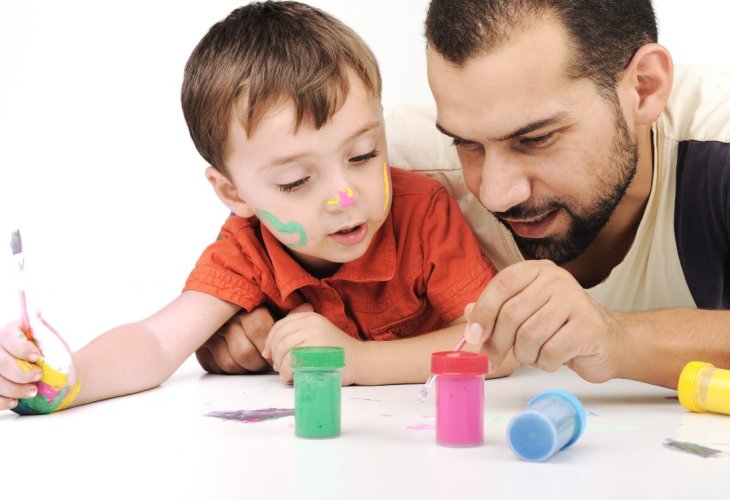Personality Development
The Foundations of Jewish Education: Building Connection, Responsibility, and Soul
Timeless Insights on Parenting and Teaching from Torah Wisdom
 (Photo: shutterstock)
(Photo: shutterstock)1. Education Is More Than Habits- It’s About Elevating the Soul
The essence of education is not just instilling habits but filling in the understanding a child lacks. A child doesn’t yet grasp the weight of personal responsibility or the depth of what it means to grow into a mature human being. Tthe goal isn’t just to create routine but to elevate the spirit of the child and to shape how they think and perceive the world.
A child absorbs the worldview of their educator and begins to live by it, but only if there is a strong relationship between the child and the adult. Education without connection is closer to conditioning. The adult may enforce a lifestyle or behavior pattern, but it won’t impact the child’s inner world. When a child is connected to their educator, true growth begins. The child stands taller because a “greater one stands beside them.” Through the bond, the adult imparts their perspective, their sense of good and evil, and their moral clarity. (Ohel Yaakov VeLeah)
2. Love Is the Gateway to Influence
Children are incredibly sensitive and can intuit who truly loves them, and will only be open to learning from someone they feel genuinely cares. True care from the educator is the root of success.
Rabbi Shlomo of Slonim shared: “I always ask educators if they love their students. Their answer tells me everything I need to know about their potential to succeed.” He quotes the Baal Shem Tov’s interpretation of the Talmud: "The sun (the influencer) never sees the flaw of the moon (the receiver)." A teacher must never focus on the flaws of a student- if they do, their efforts will not succeed.
(N’tivei HaChinuch, p. 27)
3. Children See Us More Than They Hear Us
As a parent, your child watches your every move- your tone, your expressions, and your presence during mitzvot. If, G-d forbid, they see us take a mitzvah lightly or perform it without sincerity, it leaves a deep impression. No amount of inspiring words later on will undo the damage of a bad example. (Alei Shur, p. 259)
4. When a Child Goes Off Track, Keep the Connection
If a child strays and no longer listens to their parents, the most powerful tool is to preserve the natural parent-child bond. Even in hard times, keep them involved in the family to whatever extent is healthy for other children. That connection is what will help restore their sense of identity.
As the Midrash teaches: A king’s son developed a taste for non-kosher food. The king didn’t scold or threaten him but instead, he said: "Let him eat at my table daily, and he will gradually change."
When rebuke and pressure fail, connection and dignity can succeed. (Ohel Yaakov VeLeah)
5. King Solomon’s Parenting Model
King Solomon describes his upbringing: "I was a tender child to my father, and an only one to my mother. And he taught me and said to me: Let your heart hold fast my words; keep my commandments and live." He first speaks of the warmth and love he felt, and then explains how this love allowed him to trust and internalize his parents’ guidance.
6. The Power of a Parent’s Prayer
Parents should constantly pray for their children to be Torah-learners, righteous, and kind. When reciting blessings like:
“And may we and our descendants...” or “Our compassionate Father, have mercy on us and place in our hearts...” they should direct their intention toward their children and grandchildren for generations.
The Shemot Luchot HaEidut writes of a parent who would literally weep and press his face to the ground, praying daily that none of his children should ever stray or fall.
(Shnei Luchot HaBrit, Shaar HaOtiot – “Derech Eretz”)
7. The Most Neglected Yet Most Critical Area
Education stands among the most crucial tasks in life, yet it’s often underestimated. Everyone considers themselves a parenting expert, until their child challenges that assumption. Modern educational theories often reflect more of the educator’s personality and cultural setting than any timeless truth. (Netivei HaChinuch, p. 12)
8. True Education Begins Within the Child
It’s not enough to teach a child to obey authority because that alone won’t create inner transformation. Eventually, they will see the teacher as a stranger, or worse, a tyrant.
The real task is to help the child recognize their own responsibility in shaping who they become. They must see themselves not as passive recipients, but as young trees planted by G-d, tasked with growing into a Tree of Life.
Teach the child: You are your own educator. You are responsible for the kind of human being you will become. (Chovat HaTalmidim)

